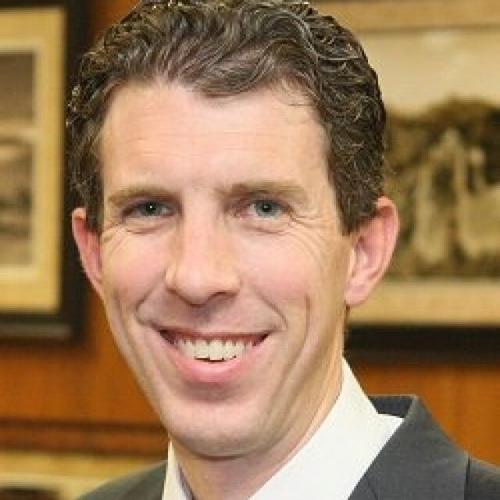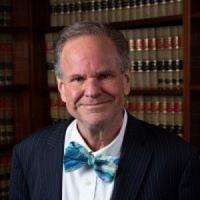
California Appellate Justice Brian Hoffstadt
LOS ANGELES - A state appeals panel has agreed with the reduction of a fee award for an attorney accused of padding his bills, finding there wasn’t a need to import heightened standards from federal court to second-guess the reduction decision.
The root matter dates to a whistleblowing incident from 2017 that led to a 20-day jury trial in the spring of 2023. That proceeding resulted in a finding in favor of Michal Cash, a Los Angeles County Fire Department captain who alleged he was removed as a training captain in retaliation for reporting gender discrimination regarding a female recruit who failed a test typically resulting in academy termination.
The jury awarded Cash $450,000, after which Los Angeles County failed to convince a judge to grant judgment notwithstanding the verdict or to order a new trial. In August 2023, Cash asked the court to award him $705,730 in legal fees as a prevailing plaintiff in a Fair Employment and Housing Act claim. In October he filed a supplemental request, seeking $29,580 more to cover attorney work on post-trial motions.
In response, the county asked Los Angeles County Superior Court Judge Lia Martin to reduce the overall award by about a third based on claims of duplicative and excessive billing.
Martin ultimately said Cash could recover $455,546. The calculation came from lowering billing rates for work attributed to paralegals and associates, as well as a 30% across-the-board cut stemming from a review of billing records and a determination the trial was prolonged during witness questioning.
Cash challenged that ruling before the California Second District Appellate Court. Justice Brian Hoffstadt wrote the panel’s opinion, filed May 30; Justice Dorothy Kim concurred while Justice Lamar Baker wrote a partial dissent.
Hoffstadt said some California courts have found reason to apply additional scrutiny to fee award requests, but noted the panel primarily agreed with such rulings stemming from “a desire to err on the side of overinclusive fee awards to incentivize lawyers to litigate federal civil rights cases; this rationale does not justify the spread of heightened scrutiny to every fee award for every employment, consumer protection, or other civil case arising in California.”
Specifically the panel noted a desire to preserve the discretion of trial judges to apply blanket percentage reductions without detailed justification beyond being “the percipient witnesses to the quality of representation and hence the amount of fees that representation justifies.”
In this case, Judge Martin cited excessive billed hours and overstaffing, and Hoffstadt said it’s enough for a judge to suggest lawyers over-litigated their case. He also framed as “irrelevant” Cash’s arguments the county’s posttrial motions were frivolous and said Martin didn’t err by starting calculations with Cash’s originally requested amount and not incorporation the supplemental request.

Steven Haney
Hoffstadt further said Martin wasn’t wrong to tax Cash’s costs associated with an expert witness, noting “substantial evidence supports a finding” the work didn’t actually help Cash at trial because the witness was barred from offering opinions on the credibility of other testimony or the alleged retaliation.
In his dissent, Baker wrote that the majority opinion “adequately frames the split … that marks this case as a good candidate for a grant of Supreme Court review. It does not, however, make plain the stakes of the dispute for civil rights plaintiffs, consumer advocates and public interest litigants.”
Baker framed Judge Martin’s 30% reduction as “a throw up your hands approach, and if the majority has its way, more and more trial courts will follow.” He agreed with the majority’s position that “a court confronted with a voluminous attorney fees motion is allowed to make an across-the-board reduction,” but differed on the required justification standard for such decisions while also departing from the majority on its view regarding federal precedent.
“If a court is going to take a meat cleaver rather than a slicing knife to an attorney fees request in a case where the Legislature has authorized recovery of fees for good public policy reasons,” Baker wrote, “the court should have a correspondingly greater obligation to justify its choice of that blunt tool and thereby enable meaningful appellate review of its award.”
Baker specifically said appeals panels should more closely examine whether judges had a good reason for an “inherently imprecise method” beyond it being the easier and faster option, and further said “so far as I can tell based on the sparse record the trial court made, the court chose its across-the-board remedy for all the wrong reasons.” He noted the county never made even a rough effort to demonstrate how it landed on proposing a 30% reduction and apparently chose that figure based on another case from the Fifth Appellate District.
Not only did Baker find Judge Martin’s decision to be cursory, but he said the majority likewise didn’t apply sufficient scrutiny to that ruling or the underlying litigation. His only agreement with the majority related to endorsing the taxing of Cash’s costs for an expert witness.
Cash is represented by attorneys Steven H. Haney, George M. Hill, and
Natalie M. Contreras, of the firm of Haney & Shah, of Los Angeles.
Representing the county were attorneys Ronda D. Jamgotchian, Michael T. Campbell, and Daniel J. Ganz, of Sheppard, Mullin, Richter & Hampton, of Century City.






